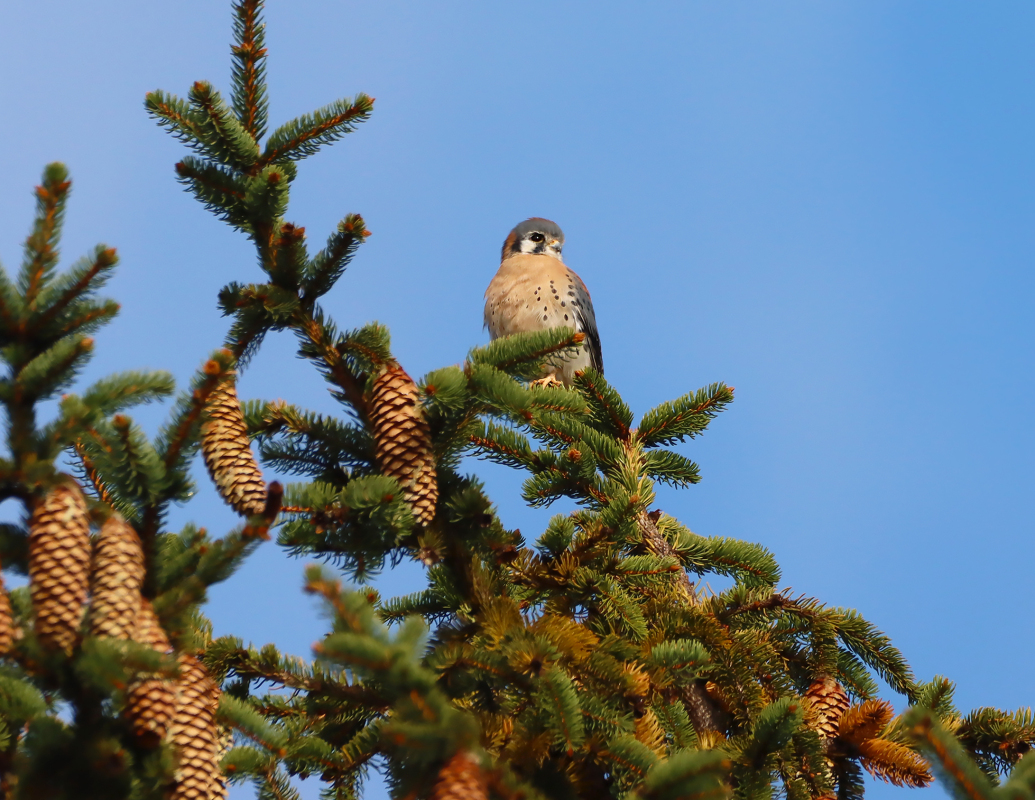Raptor Conservation & Steps
Raptor conservation is the cornerstone of our mission at RAPTOR Inc. In addition to being the premier site for treating injured raptors in the Greater Cincinnati area, RAPTOR Inc. conducts educational programs to increase awareness of the importance of raptors to our environment. We also participate in field projects to aid in their protection.
Birds of prey provide many valuable environmental services. They help control populations of pest species such as mice, rats, and insects. They remove carrion from the environment, reducing the spread of disease. They also serve as key indicators of environmental contamination.
In many instances the birds admitted to our rehabilitation hospital sustained injuries from contact with people or our man-made structures. By taking a few simple actions we can significantly reduce our negative impact on wildlife and help preserve these magnificent creatures for future generations.
How You Can Help Raptors
- Follow all game laws. Improper trapping or baiting can cause severe injuries to unintended species such as bald eagles and vultures. All birds of prey are legally protected and violations can carry severe penalties.
- Dispose of trash in appropriate receptacles and pick up trash around roadways. Raptors are attracted to the small mammals which eat the morsels of food left on litter. Removing litter along roadways reduces the chance of raptors colliding with vehicles while hunting.
- Take down sport netting when not in use. Nocturnal animals, like owls, often get tangled in sport netting causing serious injuries.
- Properly dispose of fishing line or kite string to prevent raptors from becoming entangled in them. Use care when hanging Christmas lights, making sure lights are tightly secured to the structure with no hanging loops that can cause entanglements.
- Do not release helium balloons or flaming sky lanterns into the environment! Entanglements can cause life-threatening injuries and lanterns can cause devastating fires!
- When hunting and fishing, switch to lead-free sinkers and ammunition, and bury gut piles. Only a tiny amount of lead can cause fatal poisoning in raptors. Raptors can consume lead from scavenging on carrion, or from eating birds or fish that have accidently ingested lead. Lead is highly toxic to humans too!
- Do not use poisons to eradicate weeds or pests such as rodents and insects. These substances often enter the food chain and indirectly poison raptors and other wildlife. Glue traps are also cruel, indiscriminate killers and often catch animals that are unintended victims, typically birds, snakes, lizards, and small mammals. Use snap traps and install nest boxes instead.
- Observe and photograph raptors responsibly and ethically. Many people enjoy watching and photographing raptors, but it is important to enjoy them without disturbing them. Disturbance can cause a thin bird to waste valuable energy, cause an adult to leave vulnerable eggs or young unattended, or cause stress leading to nest abandonment. Maintain adequate distance to prevent displacing a bird or disturbing their habitat. Protect the habitat around nesting or roosting sites. Do not bait or use call recordings to draw in birds!
- Keep cats indoors. Cats kill large numbers of birds, reptiles and mammals when left outside.
- Cap chimneys. Animals that nest in cavities, such as barred owls, often get trapped in uncapped chimneys.
- Plant native plants. Native plants help the entire ecosystem.
- Plan your tree work for the fall, after birds leave the nest but before owls nest in the winter. Leave up dead trees if it is safe to do so.
- Support local wildlife rehabilitation centers and the comprehensive work they do!

